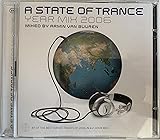All Categories
Feeling & Knowing: Making Minds Conscious
Share Tweet
*Price and Stocks may change without prior notice
*Packaging of actual item may differ from photo shown
- Electrical items MAY be 110 volts.
- 7 Day Return Policy
- All products are genuine and original








About Feeling & Knowing: Making Minds Conscious
Product Description From one of the world’s leading neuroscientists: a succinct, illuminating, wholly engaging investigation of how biology, neuroscience, psychology, and artificial intelligence have given us the tools to unlock the mysteries of human consciousness In recent decades, many philosophers and cognitive scientists have declared the problem of consciousness unsolvable, but Antonio Damasio is convinced that recent findings across multiple scientific disciplines have given us a way to understand consciousness and its significance for human life. In the forty-eight brief chapters of Feeling & Knowing, and in writing that remains faithful to our intuitive sense of what feeling and experiencing are about, Damasio helps us understand why being conscious is not the same as sensing, why nervous systems are essential for the development of feelings, and why feeling opens the way to consciousness writ large. He combines the latest discoveries in various sciences with philosophy and discusses his original research, which has transformed our understanding of the brain and human behavior. Here is an indispensable guide to understanding how we experience the world within and around us and find our place in the universe. Review “Here the master scientist unites with the silken prose-stylist to produce one thrilling insight after another . . . Damasio has succeeded brilliantly in narrowing the gap between body and mind.” — The New York Times Book Review “Damasio’s concise, precise, and lucid prose effectively convey the core insight he has distilled over decades (2): that affect—encompassing, emotions, feelings, motivations, and moods—is central to understanding what we do, how we think, and who we are.” — Science “Damasio writes lucid prose clearly addressed to a popular audience. Even better, the book is concise and helpfully divided into dozens of short chapters, many only one or two pages. Make no mistake, however; Damasio is a deep thinker familiar with multiple disciplines, and this is as much a work of philosophy as hard science. Readers familiar with college level psychology and neuroscience will discover rewarding insights.” — Kirkus Reviews About the Author ANTONIO DAMASIO is University Professor, David Dornsife Professor of Neuroscience, Psychology, and Philosophy, and director of the Brain and Creativity Institute at the University of Southern California, Los Angeles. antoniodamasio.com Excerpt. © Reprinted by permission. All rights reserved. IN THE BEGINNING WAS NOT THE WORD In the beginning was not the word; that much is clear. Not that the universe of the living was ever simple, quite the contrary. It was complex from its inception, four billion years ago. Life sailed forth without words or thoughts, without feelings or reasons, devoid of minds or consciousness. And yet living organisms sensed others like them and sensed their environments. By sensing I mean the detection of a “presence”—of another whole organism, of a molecule located on the surface of another organism or of a molecule secreted by another organism. Sensing is not perceiving, and it is not constructing a “pattern” based on something else to create a “representation” of that something else and produce an “image” in mind. On the other hand, sensing is the most elementary variety of cognition. Even more surprising, living organisms responded intelligently to what they sensed. Responding with intelligence meant that the response helped the continuation of their life. For example, if what they sensed posed a problem, an intelligent response was one that solved the problem. Importantly, however, the smartness of these simple organisms did not rely on explicit knowledge of the sort our minds use today, the sort that requires representations and images. It relied on a concealed competence that took into account the goal of maintaining life and nothing but. This non-explicit intelligence was in charge of curati




 (1)
(1)






















